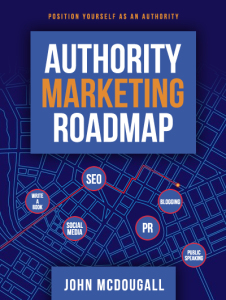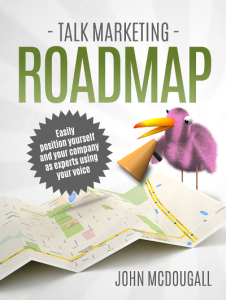After John McDougall published his first book, McDougall Interactive got a huge boost as an agency. It’s actually a common tale for companies who finally get around to publishing a book. His specialized content and blogs on things like legal marketing also showed us how much Google loves authors and influencers in specific niches. Speaking engagements and media interviews quickly followed and translated into working with some fantastic new customers. So we decided to share our deepened understanding of both the offline benefits of authorship and the way Google understands authority. We are just getting started and hope you come along with us on this exciting journey.
Google Patents Related to Authority
Even before Google held its iconic name the company was attempting to differentiate good websites from garbage ones by checking the number and types of site that were linking to it. In 1997, Larry Page one of Google’s founders, via a product originally called Backrub, filed for a provision patent on PageRank. This is the heart of what originally made Google different from other search engines and how they looked deeply at rankings in search results, based on the passing of “link juice” from site to site.
Over time their methods grew more advanced and they began to apply for patents very similar to PageRank but in regard to authors having and passing trust.
In 2005 they filed a patent under the name “Agent Rank” that:
…provides methods and apparatus, including computer program products, implementing techniques for searching and ranking linked information sources. The techniques include receiving multiple content items from a corpus of content items; receiving digital signatures each made by one of multiple agents, each digital signature associating one of the agents with one or more of the content items; and assigning a score to a first agent of the multiple agents, wherein the score is based upon the content items associated with the first agent by the digital signatures. –From US Patent Office
This, in part, says that you will be judged by your content and you will also be compared to other authors.
Knol, another Google patent, filed in 2008, on the Reputation of author of online content, states:
In addition, the reputations of particular authors may be used to adjust the reputations of other authors. For example, if Stephen King (who presumably knows his stuff, as the author of On Writing) gives 5 stars or a similar high ranking to another author, the reputation of that other author will increase more than it would if an unknown with a small reputation did the same. –From US Patent Office
What does that mean for the average person interested in Internet marketing? Google is deeply interested in who writes the content on your site, who links to that content and, to some degree, how much you get shared as an author in social circles…So content marketing must be done in a way that builds trust in your individuals and not just in your brand. Know that with 3.5 billion searches a day you will need every extra bit of help you can get if Google is important to you and taking authorship more seriously will help you in many other ways as well.
Expertise, Authoritativeness, and Trustworthiness are Key Elements to Becoming an Influencer
Google has long judged websites based on their content but a leaked 2014 Google quality rating guide intended for its thousands of low level employees, hired specifically to be judges of websites, sheds even deeper light on expertise and how Google judges your reputation. Quality raters are asked to use an acronym E.A.T. ,—which stands for expertise, authoritativeness, and trustworthiness—when judging the content on a page. So not only do you need lots of content for Google, they have advanced algorithms and now actual people rating whether you are the real deal or a poser.
It is not enough, however, to write a piece of content that is authoritative on a topic and let it sit idly on your website. Google is constantly looking for the most up-to-date information on a topic, and they have made it explicitly clear they will show preference to content being updated to reflect evolving perspectives on a given topic. As the guidelines state: “In order for a site to be deemed high quality, it must contain updated content.” So the days of writing a one and done brochure style websites are long gone and web marketers must think like publishers.
Establishing your Position through Content Development
At this point you’re probably wondering how you become a trusted authority in your niche. That’s a good thing, because it means you are thinking about the scope of the task that lies before you. At McDougall Interactive we believe that positioning within an industry is best achieved by creating consistent content that transforms your company and your site into a resource for any visitor who wants to learn about your product, service, or the industry you are involved in. In order to achieve the best results we promote a strategy where you create podcasts, videos, blog posts, and e-books based on your experience—ones answering pertinent questions that you receive through the course of your day. This content can then be turned into a printed book, speaking engagements and media appearances.
Talk Marketing
If you don’t have time to write but are able to speak freely on your topic, try what we call “Talk Marketing”. This is where the interviews with you are transcribed and used for web content and e-books. You can do it yourself via blog talk radio or a simple podcasting device (even your smart phone can work for this) or we’re here to help for those that don’t want to do it on their own.
For specific recommendations on how to design your authority marketing roadmap, contact us for a consultation or come to one of our events and let us show you how to capitalize on your expertise to become the authority in your niche.
New ebooks coming soon, including your own!



Check out John’s video about Google patents and how they relate to Authority Marketing!
